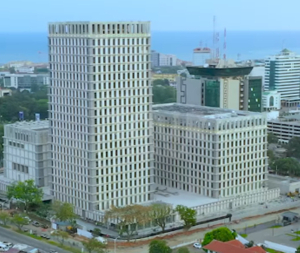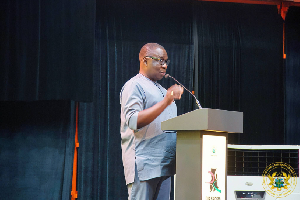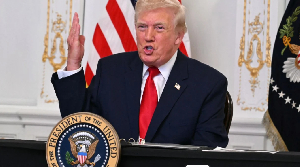Ghana will lose on the average, about 88.575 million dollars annually if it signs onto the Economic Partnership Agreement (EPA) with the European Union, Mr Osman Mensah, a consultant has said.
Speaking at a forum to commission a report on the EPA, Mr Mensah said the trade agreement would erode government's opportunity to raise revenue from imports, saying that the country could lose 1.12 billion dollars in import revenue by 2022.
ActionAid-Ghana in collaboration with the General Agriculture Workers Union (GAWU) of the Ghana Trade Union Congress convened the meeting on the research initiative.
He said the research was to propose policy alternatives for socio-economic development for the country in relation to smallholder agriculture, food security, domestic and regional trade, for a sustainable development in the agriculture sector.
He said the reason why the country initialed the EPA was the fear of losing the European Union (EU) market access for selected commodities.
He said the EPA was likely to result in crowding out and eventually collapsing the manufacturing sector in the country, which has over 95 per cent of its export to the EU market being primarily raw materials.
“Ghanaian manufacturers cannot compete fairly in the more technologically advanced European market,” he said.
Mr Mensah said, however, should the country decide to opt out of the EPA, its import tariff revenue from the EU imports would decline anyway, but the rate of decline would not be as steep as it would have been under the EPA regime.
He recommended that for the country to develop, it needed a strong and vibrant export sector that was efficient, diversified and not just dependent on primary commodity exports.
He said looking at the country’s current low productive capacity; it was not possible to fully take advantage of the free EU market access offered under the EPA, without subjecting the fragile manufacturing sector to stiff competition.
He called on Government to work with the Economic Community of West African States (ECOWAS) to renegotiate the terms of the full EPA as a bloc, to maximize the benefit of EU market access while minimizing the cost of EPA on the economy.
The Consultant urged government to coordinate its investments more efficiently and effectively to facilitate increased productivity of local industries.
Mr Kingsley Ofei-Nkansah, General Secretary, GAWU, said the EU is pushing a bad agreement down the throat of African Governments, especially Ghana.
He said there was nothing beneficial in the EPA to the people of Ghana, but rather it’s dividing the regional integration.
“It does not make economic sense for Government to sign the EPA,” he added.
Business News of Saturday, 28 September 2013
Source: GNA













